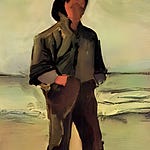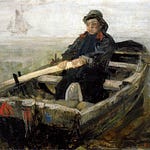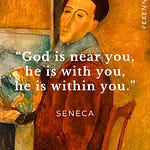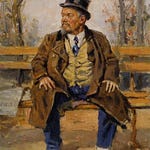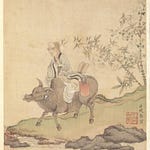Greetings Readers,
Welcome to the first edition of our new series — The Wisdom of Art. The series invites us to pause from our busy lives to explore art and poetry. Why art and poetry? As the great Leonardo da Vinci observed, “Painting is poetry that is seen rather than felt, and poetry is a painting that is felt rather than seen.” Here is a painting, a poem, and a bit of prose to consider contemplating.
***As a reminder, if you’re interested in becoming a member but unable to afford it. Feel free to request a complimentary membership or use this discount link if you need a little help.
1. The Scream by Edvard Munch (Painting)
The Scream is the best-known and most frequently reproduced of all Munch’s motifs. The Scream is the popular name given to each of four versions of a composition, created as both paintings and pastels, by Norwegian Expressionist artist Edvard Munch between 1893 and 1910. The German title Munch gave these works is Der Schrei der Natur (The Scream of Nature). The works show a figure with an agonized expression against a landscape with a tumultuous orange sky. Arthur Lubow has described The Scream as "an icon of modern art, a Mona Lisa for our time."
“The way one sees is also dependent upon one’s emotional state of mind. This is why a motif can be looked at in so many ways, and this is what makes art so interesting.”
— Edvard Munch
2. No Man is an Island by John Donne (Poem)
No man is an island, Entire of itself; Every man is a piece of the continent, A part of the main. If a clod be washed away by the sea, Europe is the less, As well as if a promontory were: As well as if a manor of thy friend's Or of thine own were. Any man's death diminishes me, Because I am involved in mankind. And therefore never send to know for whom the bell tolls; It tolls for thee.
The English writer and Anglican cleric John Donne (1572–1631) is now considered the preeminent metaphysical poet of his time. His work is distinguished by its emotional and sonic intensity and capacity to plumb the paradoxes of faith, human and divine love, and the possibility of salvation. After a resurgence in popularity in the early 20th century, Donne’s standing as a great English poet and one of the greatest writers of English prose is now assured.
Listen to this episode with a 7-day free trial
Subscribe to Perennial Meditations to listen to this post and get 7 days of free access to the full post archives.









